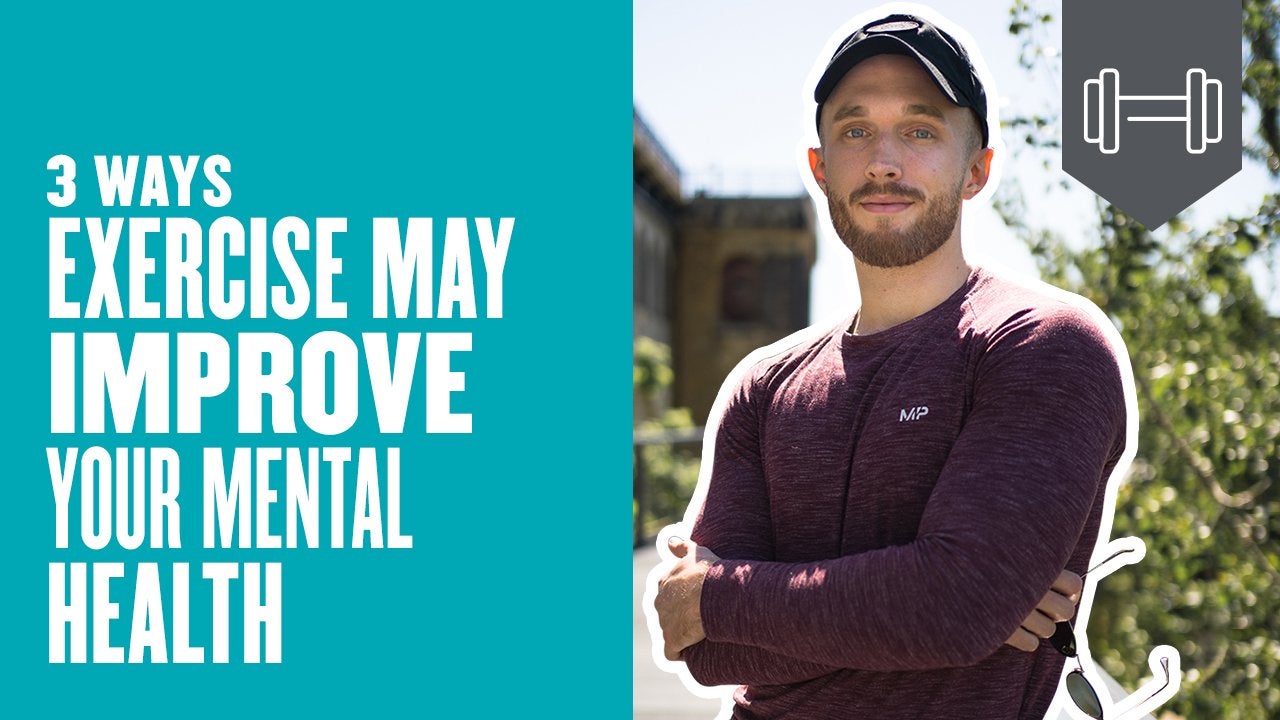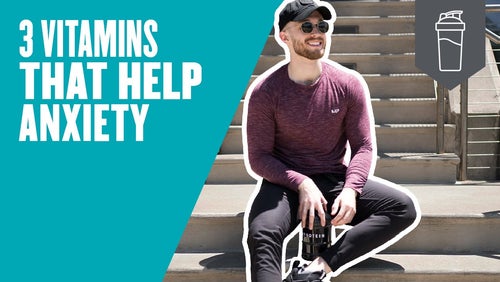
It's our responsibility to make sure the advice we give you comes from qualified experts. Our newest ambassador, Max Oldani, is a professional you can trust. An exercise physiologist with a Masters in Public Health, Max is the right individual to dish out the facts on how exercise can not only improve your physical well-being but also your mental well-being.
Here, Max outlines 3 ways exercise can help improve your mental health. Enjoy.
https://www.youtube.com/watch?v=g3dN3NgzODU
It's no secret that exercise can improve your physical fitness. But how can exercise improve your mental fitness? Let's recap with some help from Max.
1. Exercise can help you to battle anxiety & depression, and can improve your mood
In the video above, Max explains that the improved blood flow that comes with exercise positively impacts our "HPA Axis" which influences our "reactivity to stress" and controls different parts of our brain such as the limbic system, the amygdala, and the hippocampus which control our "mood and motivation".
In addition, Max adds that "not only are you able to bring more nutrients to these areas and help them grow and function properly but you're also able to build more neurons" due to the increased blood flow that comes with exercise.
The creation of these neurons leads to Max's second point – exercise can promote neurogenesis or the creation of new neurons, increasing the likelihood of improved mood over time.
Max goes on to say that "There is a strong correlation between the people who have mental health issues and those who have reduced nuerogenesis in the hippocampus. This is especially true for those with depression."
2. Exercise over a period of time can make you happier
Ever realize that when you're more consistent with exercise, you're less moody and have more energy? Well, it turns out that keeping consistent with your routine may make you happier over time.
"When you exercise regularly, when you feel that joy from the acute effects of exercise compounded over time...that leads to a happier life." Max explains.
As Max puts it, this is due to the fact that neurogenesis increases the production of neurons in the hippocampus, helping you process new information and separate old and new memories.
3. Exercise can boost your self-esteem
When consistency in your exercise routine and improved mood come together, you're bound to get a little more confident in your own skin. Max's third point is that exercise can boost your self esteem.
In short, it's because you can obtain a better body composition, lose weight, build muscle, and even perform better in the gym or on the field.
"We start to fit in our clothes better, we start to lose body fat, we start to increase muscle tone or strength." Max elaborates.
"We become better at endurance activities or sports. We become more confident in that respect because we're making progress."
Common queries regarding exercise and mental health
How often should I exercise to reap the mental health benefits?
"For starters, I recommend being physically active every day by making sure to get on your feet after long periods of sitting.
However, in terms of exercise, a general rule of thumb is 30 minutes of moderate exercise five days per week to reap a multitude of health benefits, including improved mental health." Says Max.
What is the best exercise for improved mental well-being?
"You can’t go wrong with any kind of exercise to improve your mental well-being, but cardio workouts like running, jogging or walking all take the cake if there was a competition." Says Max.
"Sure yoga and resistance training (my personal favorite) are great too, but improving your blood circulation through cardio not only keeps your heart healthy but helps bring more oxygen to the brain, creating more feel-good chemicals and helping you feel calm throughout the day."
How can I get started with exercise if I’ve never done it before?
Anything less is likely not enough for your body to adapt and your mind to learn how to perform the type of workouts properly." Says Max
How long does it take for exercise to improve mood?
The more consistent you are with exercise the better your mood will be on a daily basis." Says Max
Take Home Message
Altogether, Max feels that improving your physical or mental well-being starts with setting a goal as he lays out in his third point – and there's a lot of sense to that.
How can we begin to improve areas of our life without the desire to take the necessary next steps?
How can we meet our fitness goals without staying consistent?
If you or someone you know is experiencing mental health issues, exercise may be a good first step in alleviating stress or other conditions.
Above all, you should consult a physician or mental health expert if you are experiencing mental health issues. Go to the National Alliance on Mental Health Hotline to find more resources on mental health.
Want more tips from Max Oldani? Check these out next.

3 Vitamins For Managing Stress and Anxiety | Expert Tips From a Health Professional
These may help you manage stress that much better....

A Fordham University graduate, Ian majored in communications and media studies with a focus in journalism and a minor in anthropology during his time at college. Here, he wrote for the university newspaper ranked top ten in the nation.
A competitive athlete for most of his life, Ian has spent almost a decade working as an ocean rescue lifeguard in New Jersey. Within that role, he has competed in endurance sports competitions against other lifeguards for the last 8 years.
As a lifelong surfer, Ian spends most of his spare time in the ocean regardless of the time of year. He also enjoys distance running, photography, and frequently spending entirely too much money on concert tickets.











